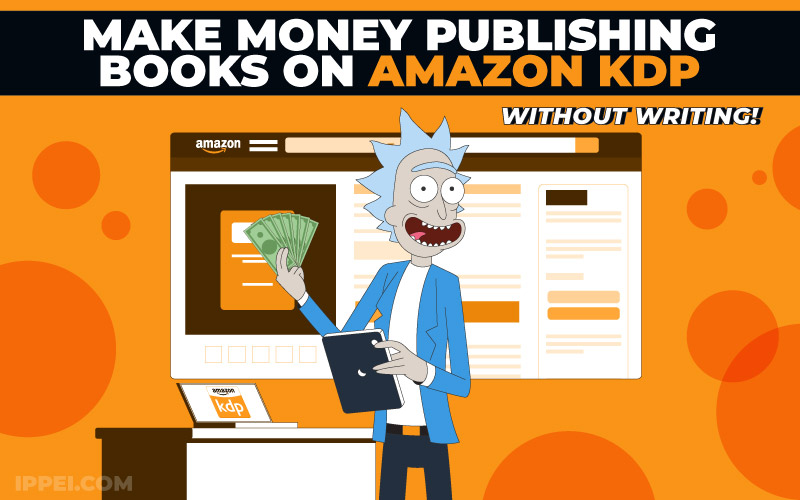The Reality of Author Income: Separating Fact from Fiction
When it comes to book writing earnings, there are many misconceptions and myths surrounding the topic. Many aspiring authors wonder, “How much money do you make writing a book?” The answer is not a simple one, as it depends on various factors such as book sales, advances, and royalties. To understand the reality of author income, it’s essential to separate fact from fiction.
One common myth is that authors earn a significant amount of money from book sales. While some bestselling authors do earn substantial amounts, the reality is that most authors earn modest incomes from their book sales. According to a survey by the Authors Guild, the median income for authors in the United States is around $6,000 per year.
Another myth is that advances are a guaranteed way to earn a significant amount of money. While advances can provide a lump sum payment, they are often deducted from future royalties, and authors may not earn any additional income until the advance is earned out. Furthermore, advances are typically offered to established authors or those with a strong platform, making it challenging for new authors to secure a significant advance.
Royalties are another crucial factor in determining author income. Royalties are typically paid on a per-book basis, ranging from 10% to 15% of the book’s net sales. However, royalties can vary depending on the publishing contract, book format, and distribution channels. Authors who self-publish or use online platforms like Amazon Kindle Direct Publishing may earn higher royalties, but they also bear the costs of editing, formatting, and marketing.
To understand the reality of author income, it’s essential to consider the various factors that impact earnings. By separating fact from fiction and understanding the complexities of book sales, advances, and royalties, authors can set realistic expectations and make informed decisions about their writing careers.
Factors Affecting Book Writing Income: Genre, Platform, and More
When it comes to determining how much money you can make writing a book, several factors come into play. Genre, book format, publishing platform, and marketing strategies all impact an author’s earning potential. Understanding these factors can help authors make informed decisions about their writing careers and increase their chances of success.
Genre is a significant factor in determining book writing income. Different genres have varying levels of popularity and demand, which can impact sales and earnings. For example, romance novels and thrillers tend to be more popular and lucrative than literary fiction or poetry. Authors who write in popular genres may have a higher earning potential than those who write in less popular genres.
Book format is another crucial factor. eBooks, paperbacks, and audiobooks all have different pricing and royalty structures, which can impact an author’s earnings. For example, eBooks typically have higher royalty rates than paperbacks, but may also have lower prices. Authors who self-publish or use online platforms like Amazon Kindle Direct Publishing may earn higher royalties than those who traditionally publish.
Publishing platform is also a critical factor. Traditional publishing, self-publishing, and hybrid publishing models all have different advantages and disadvantages. Traditional publishing often provides advances and professional editing, but may also take a larger share of the royalties. Self-publishing allows authors to maintain creative control and higher royalties, but may require more upfront costs and marketing efforts.
Marketing strategies also play a significant role in determining book writing income. Authors who are able to effectively promote their work through social media, email marketing, and other channels may be able to increase their sales and earnings. Building a strong author platform and engaging with readers can help authors build a loyal following and increase their earning potential.
By understanding the factors that impact book writing income, authors can make informed decisions about their writing careers and increase their chances of success. Whether it’s choosing a popular genre, selecting the right publishing platform, or developing effective marketing strategies, authors who are aware of these factors can better navigate the complex world of book writing and increase their earning potential.
How to Determine Your Book’s Earning Potential
Determining a book’s earning potential is crucial for authors who want to make a living from their writing. To estimate a book’s earning potential, authors need to research and analyze market trends, competition, and target audience. This involves understanding the demand for books in their genre, the number of potential readers, and the average price of books in their category.
One way to research market trends is to use online tools such as Amazon Kindle Spy or K-Lytics. These tools provide data on book sales, royalties, and reader demographics, which can help authors estimate their book’s earning potential. Authors can also use social media and online communities to connect with potential readers and gather feedback on their book idea.
Another important factor to consider is competition. Authors need to research their competitors and understand how their book will stand out in a crowded market. This involves analyzing the strengths and weaknesses of competing books, identifying gaps in the market, and developing a unique selling proposition (USP) for their book.
Understanding the target audience is also crucial for determining a book’s earning potential. Authors need to identify their ideal reader, including their demographics, interests, and reading habits. This involves creating a reader profile, which can help authors tailor their marketing and promotion efforts to their target audience.
Once authors have researched market trends, competition, and target audience, they can estimate their book’s earning potential. This involves setting realistic expectations and developing a financial plan for their book. Authors can use online tools such as book royalty calculators or publishing industry reports to estimate their book’s earning potential.
By following these steps, authors can determine their book’s earning potential and make informed decisions about their writing career. Whether it’s deciding on a publishing route, setting a book price, or developing a marketing strategy, authors who understand their book’s earning potential can increase their chances of success and make a living from their writing.
Understanding Book Royalties: A Comprehensive Guide
Book royalties are a crucial aspect of an author’s earnings, and understanding how they work is essential for maximizing income. In this section, we will delve into the world of book royalties, explaining how they work, the different types of royalties, and how authors can maximize their royalty earnings.
Book royalties are typically paid on a per-book basis, ranging from 10% to 15% of the book’s net sales. However, royalties can vary depending on the publishing contract, book format, and distribution channels. For example, eBooks typically have higher royalty rates than paperbacks, while audiobooks may have lower royalty rates.
There are several types of book royalties, including print royalties, digital royalties, and audiobook royalties. Print royalties are paid on the sale of physical books, while digital royalties are paid on the sale of eBooks. Audiobook royalties are paid on the sale of audiobooks, which are becoming increasingly popular.
Authors can maximize their royalty earnings by understanding the different types of royalties and how they work. For example, authors who self-publish or use online platforms like Amazon Kindle Direct Publishing may earn higher royalties than those who traditionally publish. Additionally, authors can negotiate their royalty rates with their publisher or agent to ensure they are getting the best possible deal.
Another way authors can maximize their royalty earnings is by selling their books directly to readers. This can be done through their own website or through online platforms like Amazon or Barnes & Noble. By selling their books directly, authors can earn up to 70% of the book’s net sales, compared to the 10% to 15% they would earn through traditional publishing.
Finally, authors can also earn royalties through subsidiary rights, such as film or TV adaptations, foreign language translations, and audiobook sales. These rights can be sold separately from the book itself, providing authors with an additional source of income.
By understanding book royalties and how they work, authors can maximize their earnings and make a living from their writing. Whether it’s negotiating royalty rates, selling books directly to readers, or earning subsidiary rights, authors have a range of options for increasing their income and achieving success in the publishing industry.
Advances and Book Deals: What You Need to Know
Advances and book deals are a crucial part of the publishing industry, and understanding how they work can help authors make informed decisions about their writing career. In this section, we will discuss the concept of advances and book deals, including how they are negotiated, the pros and cons of accepting an advance, and how authors can make the most of these opportunities.
An advance is a payment made by a publisher to an author before the book is published. The advance is typically deducted from the author’s future royalties, and the author is not required to repay the advance if the book does not earn out. Advances can be a significant source of income for authors, but they can also impact the author’s royalty earnings.
Book deals, on the other hand, are agreements between authors and publishers that outline the terms of the publishing contract. Book deals can include advances, royalties, and other benefits, such as marketing and promotion support. Authors who are offered a book deal should carefully review the contract and negotiate the terms to ensure they are getting the best possible deal.
The pros of accepting an advance include the potential for a significant upfront payment, which can help authors cover living expenses while they write. Advances can also provide authors with a sense of security and stability, knowing that they have a guaranteed source of income. However, there are also cons to consider, such as the potential impact on royalty earnings and the risk of not earning out the advance.
To make the most of advances and book deals, authors should carefully review the contract and negotiate the terms. Authors should also consider seeking the advice of a literary agent or attorney to ensure they are getting the best possible deal. Additionally, authors should be aware of the potential impact of advances on their royalty earnings and plan accordingly.
By understanding advances and book deals, authors can make informed decisions about their writing career and increase their chances of success. Whether it’s negotiating a book deal or accepting an advance, authors should be aware of the potential benefits and risks and plan accordingly.
Marketing and Promotion Strategies to Boost Book Sales
Marketing and promotion are crucial components of a successful book launch. To increase sales and earnings, authors need to develop a solid marketing strategy that reaches their target audience. In this section, we will discuss actionable tips on marketing and promoting books, including social media marketing, email marketing, book signings, and online advertising.
Social media marketing is a powerful tool for authors to connect with their audience and promote their book. Platforms like Facebook, Twitter, and Instagram offer a range of features that allow authors to share updates, behind-the-scenes insights, and exclusive content. By building a strong social media presence, authors can increase their visibility, engage with their audience, and drive sales.
Email marketing is another effective way to promote a book. By building an email list and sending regular newsletters, authors can keep their audience informed about their work, share updates, and offer exclusive content. Email marketing can also be used to promote special offers, discounts, and promotions, which can help drive sales and increase earnings.
Book signings and events are a great way to connect with readers and promote a book. By hosting book signings, readings, and other events, authors can meet their audience, share their work, and build a loyal following. Book signings can also be used to promote a book and increase sales, especially if authors offer exclusive content or discounts to attendees.
Online advertising is a powerful tool for authors to reach a wider audience and promote their book. Platforms like Amazon Marketing Services, Facebook Ads, and Google AdWords offer a range of features that allow authors to target their audience, increase their visibility, and drive sales. By using online advertising, authors can reach a wider audience, increase their earnings, and build a loyal following.
By incorporating these marketing and promotion strategies into their book launch plan, authors can increase their sales and earnings, build a loyal following, and achieve success in the publishing industry. Whether it’s social media marketing, email marketing, book signings, or online advertising, authors have a range of options to promote their work and reach their target audience.
Success Stories: Real-Life Examples of Authors’ Earnings
While it’s difficult to estimate exactly how much money you can make writing a book, there are many examples of authors who have achieved success and earned significant income from their books. In this section, we will share inspiring stories of authors who have turned their passion into a profitable career.
One example is John Grisham, who has written numerous bestselling novels and has earned millions of dollars from his book sales. Grisham’s success can be attributed to his ability to write compelling stories that resonate with readers, as well as his savvy marketing and promotion strategies.
Another example is Amanda Hocking, who has earned millions of dollars from her self-published eBooks. Hocking’s success can be attributed to her ability to write engaging stories that appeal to a wide range of readers, as well as her effective use of social media and online marketing strategies.
Mark Dawson is another example of an author who has achieved success and earned significant income from his books. Dawson has written numerous bestselling novels and has earned millions of dollars from his book sales. His success can be attributed to his ability to write compelling stories that resonate with readers, as well as his effective use of marketing and promotion strategies.
These success stories demonstrate that it is possible to earn a significant income from writing books. However, it’s essential to remember that success in the publishing industry requires hard work, dedication, and a willingness to learn and adapt. By studying the strategies and techniques used by successful authors, aspiring writers can increase their chances of success and turn their passion into a profitable career.
By learning from the experiences of successful authors, aspiring writers can gain valuable insights into the publishing industry and develop the skills and knowledge needed to succeed. Whether it’s writing compelling stories, using effective marketing and promotion strategies, or building a loyal following, there are many ways to achieve success and earn a significant income from writing books.
Conclusion: Turning Your Passion into a Profitable Career
In conclusion, writing a book can be a profitable career, but it requires a deep understanding of the publishing industry, marketing strategies, and the ability to produce high-quality content. By understanding the factors that impact book writing income, including genre, platform, and marketing strategies, authors can increase their chances of success and earn a significant income from their books.
It’s essential to remember that success in the publishing industry requires hard work, dedication, and a willingness to learn and adapt. By studying the strategies and techniques used by successful authors, aspiring writers can gain valuable insights into the publishing industry and develop the skills and knowledge needed to succeed.
Whether you’re a seasoned author or just starting out, it’s crucial to stay focused on your goals and keep working towards them. With persistence, determination, and a passion for writing, you can turn your passion into a profitable career and achieve success in the publishing industry.
So, how much money can you make writing a book? The answer is, it depends on many factors, including the genre, platform, marketing strategies, and the quality of the content. However, with the right approach, authors can earn a significant income from their books and achieve success in the publishing industry.
By following the tips and strategies outlined in this article, aspiring authors can increase their chances of success and turn their passion into a profitable career. Remember, writing a book is just the first step; it’s what you do with it that matters.








